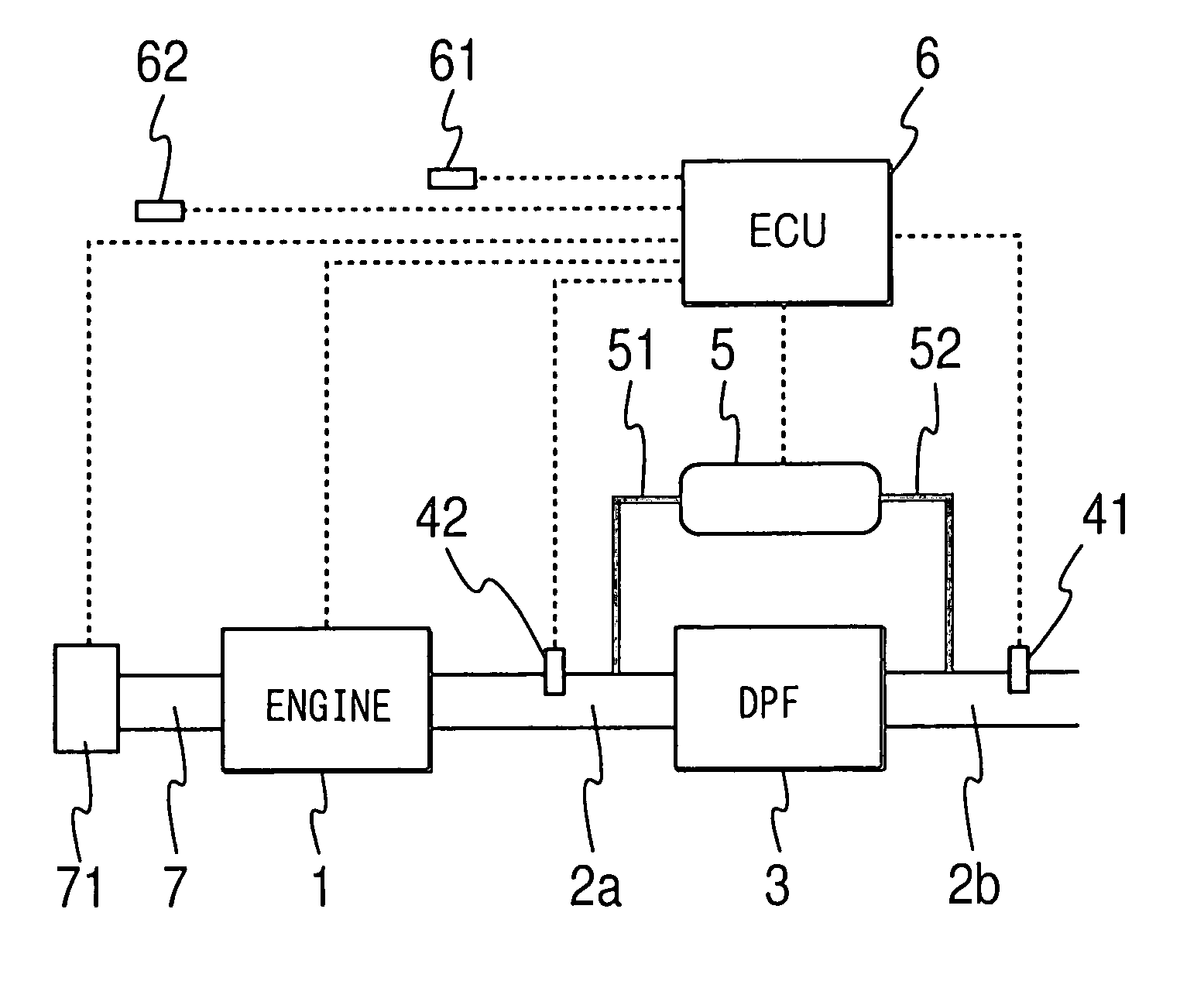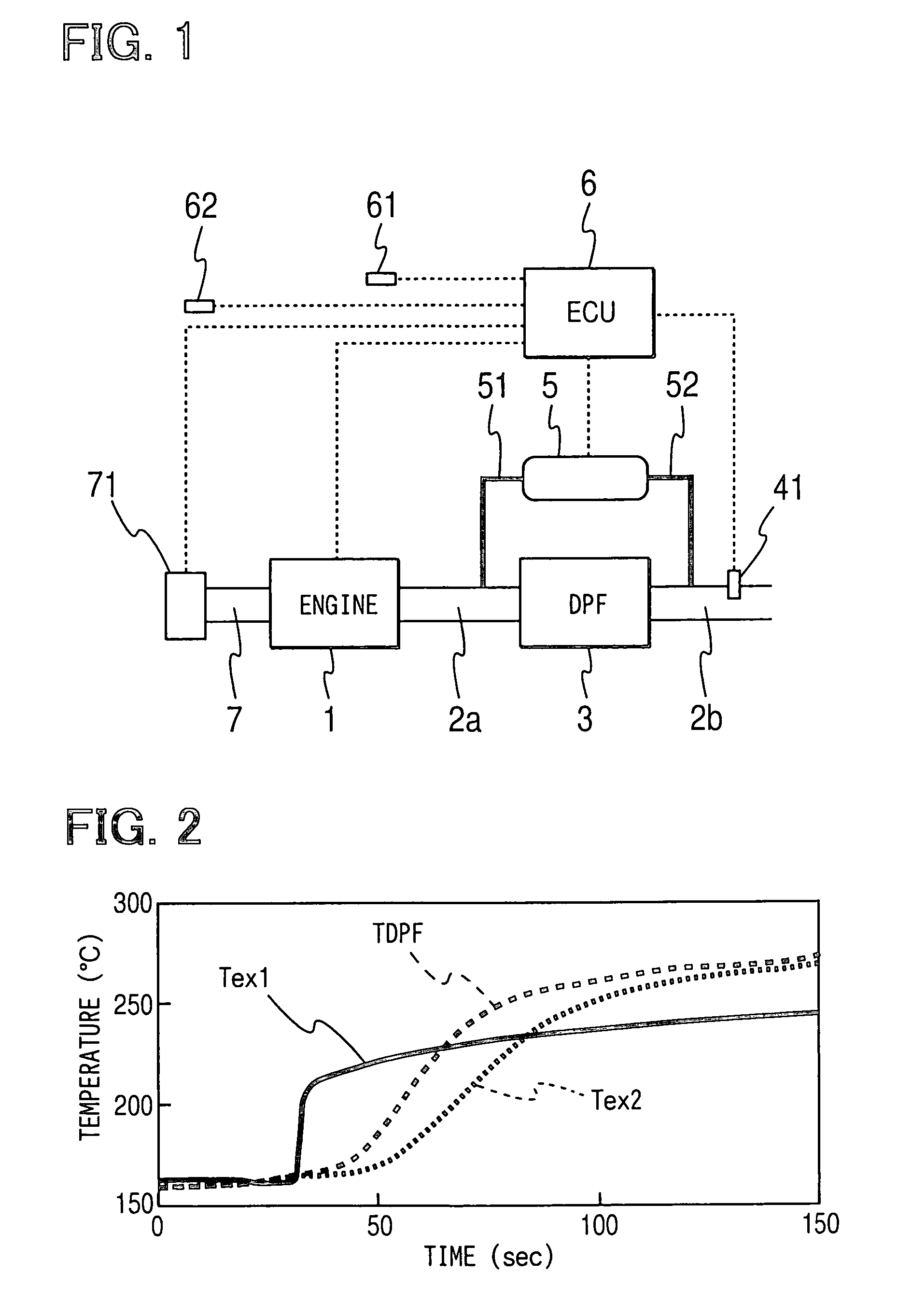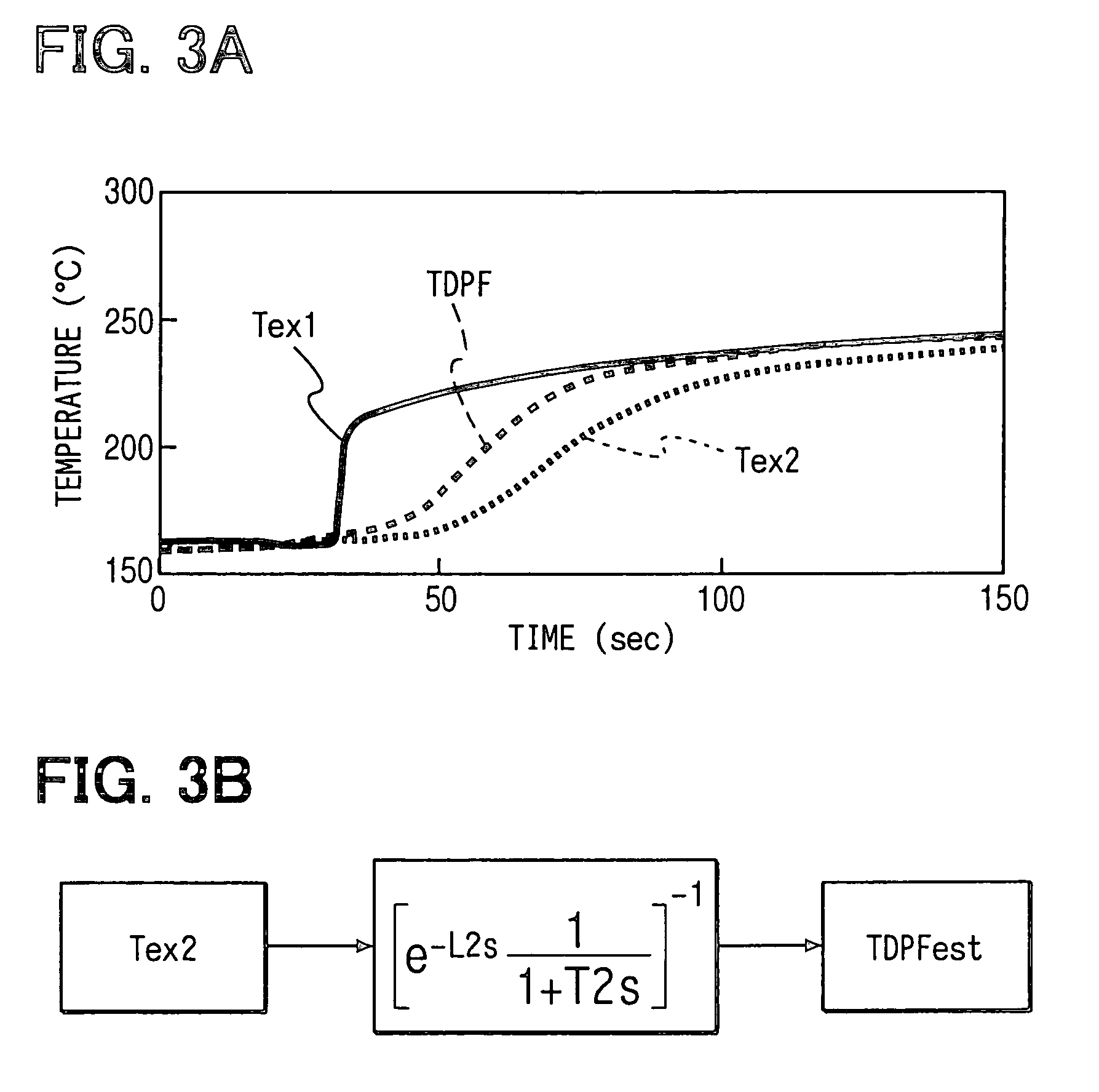Exhaust gas cleaning system for internal combustion engine
a technology for cleaning systems and internal combustion engines, applied in the direction of exhaust treatment electric control, electrical control, separation process, etc., can solve the problems of excessive heating of dpf with combustion heat of particulate matter, catalyst may be degraded, and the emission of particulate matter included in the exhaust gas of a diesel engine, etc., to achieve accurate determination and sense accurate
- Summary
- Abstract
- Description
- Claims
- Application Information
AI Technical Summary
Benefits of technology
Problems solved by technology
Method used
Image
Examples
first embodiment
[0032](First Embodiment)
[0033]Referring to FIG. 1, an exhaust gas cleaning system for a diesel engine 1 according to the first embodiment of the present invention is illustrated. In an exhaust passage of the engine 1, a diesel particulate filter (DPF) 3 having an oxidation catalyst as an exhaust gas after-treatment device is disposed between an upstream exhaust pipe 2a and a downstream exhaust pipe 2b. The DPF 3 is formed of heat-resistant ceramics such as cordierite in the shape of a honeycomb having a multiplicity of cells as exhaust gas passages, which are provided by filter walls. An inlet or an outlet of each cell is blocked alternately. The oxidation catalyst such as platinum is applied to surfaces of the filter walls of the cells. The exhaust gas discharged from the engine 1 flows downstream while passing through the porous filter wall of the DPF 3. Thus, particulate matters included in the exhaust gas are collected and accumulated in the DPF 3 gradually.
[0034]An exhaust gas ...
second embodiment
[0056](Second Embodiment)
[0057]Next, an exhaust gas cleaning system according to the second embodiment will be explained based on FIG. 7. As shown in FIG. 7, an exhaust gas temperature sensor 42 as inlet gas temperature sensing means is disposed in the exhaust pipe 2a upstream of the DPF 3 having the, oxidation catalyst. The exhaust gas temperature sensor 42 senses the inlet gas temperature of the DPF 3 and outputs a signal corresponding to the inlet gas temperature to the ECU 6. The exhaust gas cleaning system of the second embodiment determines the degradation of the oxidation catalyst based on estimated values of the DPF central temperature calculated from the outlet gas temperature and the inlet gas temperature.
[0058]The ECU 6 of the second embodiment has second temperature estimating means for calculating the estimated central temperature of the DPF 3, which reflects the effect of the heat generation caused by the catalytic reaction, based on the output values of the exhaust ga...
PUM
 Login to View More
Login to View More Abstract
Description
Claims
Application Information
 Login to View More
Login to View More - R&D
- Intellectual Property
- Life Sciences
- Materials
- Tech Scout
- Unparalleled Data Quality
- Higher Quality Content
- 60% Fewer Hallucinations
Browse by: Latest US Patents, China's latest patents, Technical Efficacy Thesaurus, Application Domain, Technology Topic, Popular Technical Reports.
© 2025 PatSnap. All rights reserved.Legal|Privacy policy|Modern Slavery Act Transparency Statement|Sitemap|About US| Contact US: help@patsnap.com



